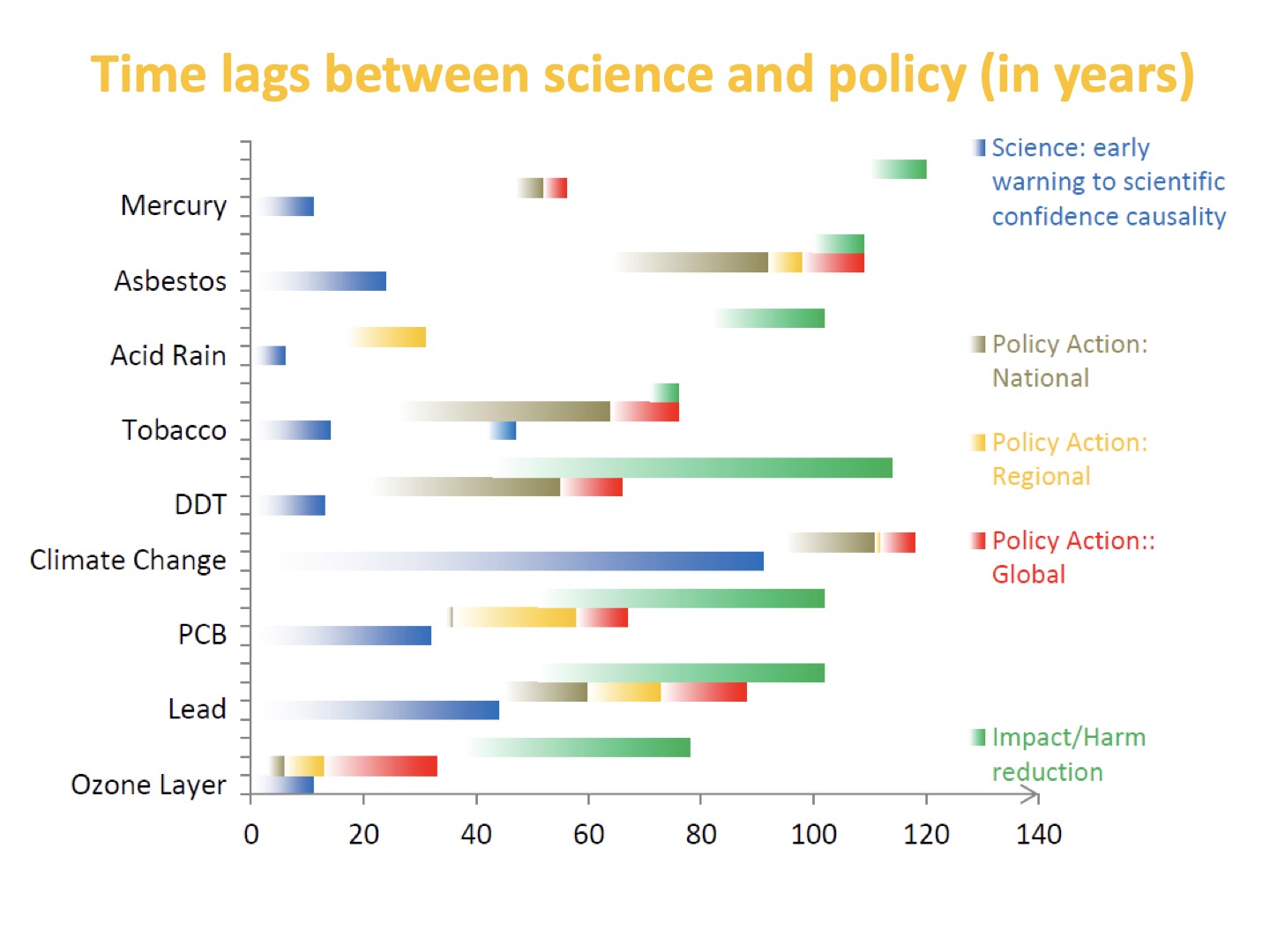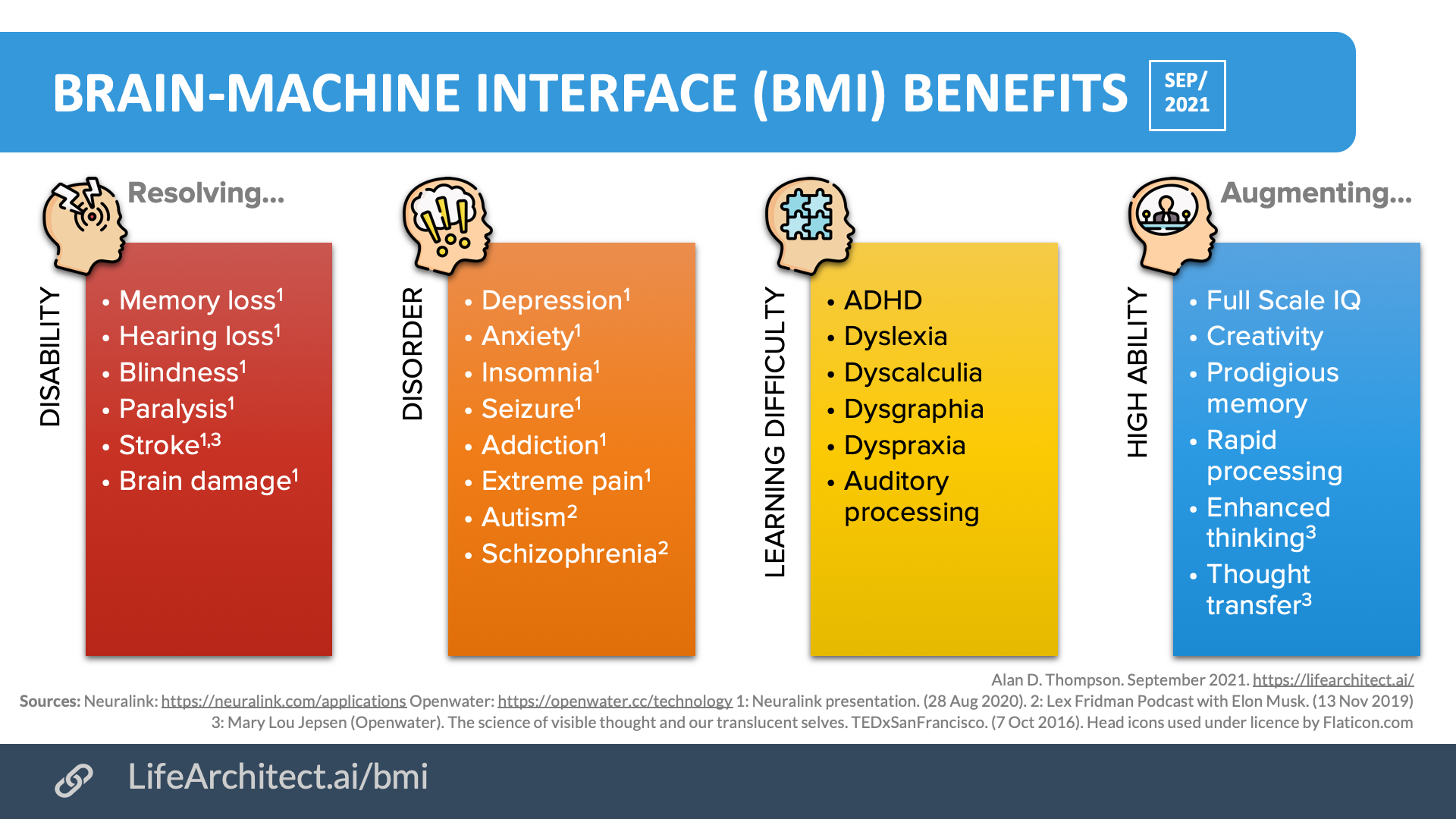(AI that matters, as it happens, in plain English)
Alan D. Thompson
July 2022
It’s taken me a while to get my mental and emotional arms around the dramatic implications of what I see for the future [with artificial intelligence]. So, when people have never heard of ideas along these lines, and hear about it for the first time and have some superficial reaction, I really see myself some decades ago. I realize it’s a long path to actually get comfortable with where the future is headed.
— Dr Ray Kurzweil. 2009. Transcendent Man (documentary)1https://www.imdb.com/title/tt1117394/
In making AI visible and accessible to everyone, I have deliberately avoided making specific predictions about the ‘future’ of AI. Perhaps more importantly, I have kept to my fields of artificial intelligence and personal development, refraining from commentary outside of this sphere. This has meant that when the media, or even an interested person, asks about the future of the economy, equitability and resource distribution, currency, safety, politics, philosophical ethics and morals, and other complex questions, I refer them to an expert in those specific fields.
However, this paper provides a high-level overview of how I see the world right now, and for the next few months and years. For clarity, this is not a decades-long view; this is happening right now. Perhaps consider this report as a 48-month view from 2022 to 2026.
Brain-machine interfaces are racing ahead. Just like the option of having a cell phone (mobile phone) or smart watch, you will have the option of connecting a brain-machine interface (BMI, also called a brain-computer interface, BCI). This is a wireless interface between your brain and the world, soon to be integrated with artificial intelligence. As of July 2022, people with ‘non-invasive’ Synchron brain implants (placed in a blood vessel) are already living among us. They are using their BMIs to shop online and chat on WhatsApp… using only thought2https://www.bloomberg.com/news/articles/2022-07-18/brain-computer-interface-company-implants-new-type-of-device.
Push this out a few months, and you will be able to have instant cognitive access to whatever you need, whenever you need it. A stroll through the botanical gardens may show you a heads-up display on your retina with information about the plants and features around you. A confrontation at work may be mitigated by knowing the other party’s motives and desires. Dreaming up a movie concept with your favorite celebrities may allow you to experience that immersive ‘film’ instantly, created for and by your own thoughts, and available for you and your family to experience in a resolution that is way beyond IMAX!
Education is over. More accurately, education as we have known it is over. With an outdated, long-term, intergenerational view that we have to go to school, and then college, and then ‘make a living’ (whatever that means), it can be next to impossible to clear this old-fashioned understanding of the world from our collective minds.
The number of colleges and universities—as well as overall enrolment—has been steadily collapsing3https://wallacekpond.com/2022/05/21/the-impending-collapse-in-higher-education/ over the last few years, accelerated by the 2019 pandemic. By default, we may assume that this is somehow ‘bad,’ but the ripple effects are wonderful.
As I’ve explored in hundreds of presentations, the advent of AI models—and the upcoming integration of these models into brain-machine interfaces—will allow instant access to information, knowledge, and wisdom. The days of sitting in a classroom are over, and should have been over much earlier than this.
I explored the massive mutation of education in detail back in May 2020, through my paper and seminar called The New Irrelevance of Intelligence4https://lifearchitect.ai/irrelevance-of-intelligence/:
It might be seen as cause for concern that the democratization of superintelligence makes many, many things irrelevant. Memorizing times tables and writing essays: irrelevant. Reading books to absorb information: irrelevant. Testing, exams, and competition: irrelevant. Typing using fingers instead of just thinking: irrelevant. Crafting letters: irrelevant. More broadly, entire fields and careers become irrelevant…
In a new world where everyone is born a prodigy and grows up as a genius, where everyone is ethical because they can see 20 steps or more into the future (like cooperative and benevolent chess grandmasters!), there is less room for conflict and more room for kindness.
Get ready for all individuals to have a complete and instant understanding of the necessary steps to get from A to Z. And beyond.
Get ready to absorb expert information, have an automatic sanity and quality check performed, immediately see and understand all cross references, ‘skip over’ older contrarian or argumentative cognitive processes, and to feel a sense of peace.
Get ready to experience a constant curiosity and subsequent satisfaction with understanding new things—and realizing them fully—in every moment.
Get ready to feel a deeper compassion for every other human being, no matter the previously identified and now outmoded differences.
Now that sounds like the kind of world I want to live in, and that’s the kind of world that I’ve dedicated my life toward creating.
AI was originally meant to replace logic only. For the last few years, it has been steadily replacing creativity. In some ways, it is already replacing imagination.
In June 2022, Microsoft—the major investor in and partner of OpenAI—walked into a primary school with the new text-to-image generator, DALL-E 2. Listening to the children’s ideas for inventions and the future, a Microsoft engineer typed in each child’s imaginings, and DALL-E 2 immediately conceptualized a picture of that invention, displayed on a big screen for everyone to see5OpenAI’s DALL·E 2 helps kids bring their world-changing ideas to life https://www.youtube.com/watch?v=y9y22D7zNAI.
This is a tiny glimpse into the shifting sands of structured learning. At the very periphery, we will have ‘instant education,’ the ability to download information, knowledge, and wisdom immediately. For right now, there are hundreds of applications that are assisting us with learning via AI, each with the capability of being tailored to the individual, rather than delivered en masse to students grouped together like factory chickens for their rote memorization drills.
Distributed income is next, and it is urgently necessary. There are many smart people working on many different forms of distributed income, usually called universal basic income (UBI). This is a mechanism where all citizens of a given population regularly receive a legally stipulated and equally set financial grant, without needing to give anything (like labor) in return.
In an essay6https://moores.samaltman.com/ exploring how this might look, the CEO of OpenAI (creators of GPT-3 and DALL-E 2), Sam Altman writes about an example scenario in the United States:
We could do something called the American Equity Fund. The American Equity Fund would be capitalized by taxing companies above a certain valuation 2.5% of their market value each year, payable in shares transferred to the fund, and by taxing 2.5% of the value of all privately-held land, payable in dollars.
All citizens over 18 would get an annual distribution, in dollars and company shares, into their accounts. People would be entrusted to use the money however they needed or wanted…
A great future isn’t complicated: we need technology to create more wealth, and policy to fairly distribute it. Everything necessary will be cheap, and everyone will have enough money to be able to afford it. As this system will be enormously popular, policymakers who embrace it early will be rewarded: they will themselves become enormously popular…
The changes coming are unstoppable. If we embrace them and plan for them, we can use them to create a much fairer, happier, and more prosperous society. The future can be almost unimaginably great.
— https://moores.samaltman.com/
The sphere of UBI is being explored in many parts of the world. From 2020 onwards, there have been basic income pilots in parts of Washington7https://kuow.org/stories/how-s-tacoma-s-guaranteed-basic-income-program-going, New York, California, Spain, Germany, Wales, and other countries.
Jobs are for robots, high unemployment is a good thing. Any change can seem jarring, but I definitely appreciate that this shift in perspective for a metric like unemployment is particularly discordant! For tens of thousands of years, humans have had jobs. From farming to executive coaching, we have found it necessary to swap the output of our minds and bodies for a tokenized representation of credits, which we can swap for things. This labor economy, and the entire branch of capitalism, has brought us to where we are today.
Through artificial intelligence, the field of automation and robotics is quickly shifting us from a labor economy to a leisure economy. As robotics and artificial intelligence continue to outperform humans8https://lifearchitect.ai/iq-testing-ai/ in several metrics, we will continue to see improvements in quality and efficiency across industries.
For example, using technology that has been iterating for two decades via the Kiva Systems robotics platform, Amazon’s warehouses are becoming more and more self-sustaining. As of June 2022, Amazon9https://www.aboutamazon.com/news/operations/10-years-of-amazon-robotics-how-robots-help-sort-packages-move-product-and-improve-safety now has over 500,000 robots working in their massive factories. Here in Australia, even our local grocery stores10https://www.supplierportal.coles.com.au/csp/wps/portal/web/SupplyChain/AutomatedDCReadiness use smart warehouses with thousands of robots working to meet automated distribution and fulfillment objectives.
At a certain point—perhaps soon—human labor will be largely superseded. As long as the distributed income above is in place, there will be no need for people to engage in dangerous, repetitive, or physical jobs. Nor should human effort be required in any other industry, including cognitively demanding jobs in all sectors of professional services.
Mental wellness will be the new normal. How are your zinc and vitamin D levels today? These and many more markers change day-to-day and season-to-season, so a vitamin cocktail customized to your body and its responses brings an innovative metamorphosis for humanity.
And there are even bigger applications of this tailored approach to ensuring that your biochemistry is optimized.
Johns Hopkins University reports11https://www.hopkinsmedicine.org/health/wellness-and-prevention/mental-health-disorder-statistics that 26% of adults in the US suffer from a diagnosable mental disorder in a given year. If that statistic were to be extended to the entire world population, we would have over 2 billion people with a diagnosable mental health issue in 2022.
Artificial intelligence will help us recognize and reset mental wellness instantly, even delivering tailored microdosing treatments directly to the bloodstream. The importance of this cannot be overstated: mental wellness defines our future completely. It is not possible to have a healed world while we have CEOs exhibiting psychopathic traits12https://www.smh.com.au/business/workplace/one-in-five-bosses-is-a-psychopath-research-reveals-20160913-greyg6.html, and world leaders with hyperthalmic temperaments13https://www.npr.org/2011/08/20/139681339/madness-and-leadership-hand-in-hand or sociopathic and narcissistic behaviors14https://doi.org/10.1017/S1049023X18001280. Only when we can overcome these blocks—another word for handicaps—can we progress as a species.
Treating illness is the first step. It is followed closely by the even greater step of optimizing wellness. This is being explored in a range of settings, with different delivery methods. The outcome for all is the same: instead of people who are just surviving, biochemical transformation will bring about people who are flourishing.
In Yuval Noah Harari’s New York Times best-selling book, Sapiens: A Brief History of Humankind15https://www.amazon.com/dp/0062316095 (also recommended by Bill Gates, Mark Zuckerberg, and Barack Obama), he talks about this biochemical transformation being the most significant development in history16https://erenow.net/common/sapiensbriefhistory/102.php.
Today, when we finally realise that the keys to happiness are in the hands of our biochemical system, we can stop wasting our time on politics and social reforms, putsches and ideologies, and focus instead on the only thing that can make us truly happy: manipulating our biochemistry. If we invest billions in understanding our brain chemistry and developing appropriate treatments, we can make people far happier than ever before, without any need of revolutions. Prozac, for example, does not change regimes, but by raising serotonin levels it lifts people out of their depression…
Some scholars compare human biochemistry to an air-conditioning system that keeps the temperature constant, come heatwave or snowstorm. Events might momentarily change the temperature, but the air-conditioning system always returns the temperature to the same set point.
Some air-conditioning systems are set at twenty-five degrees Celsius. Others are set at twenty degrees. Human happiness conditioning systems also differ from person to person. On a scale from one to ten, some people are born with a cheerful biochemical system that allows their mood to swing between levels six and ten, stabilising with time at eight. Such a person is quite happy even if she lives in an alienating big city, loses all her money in a stock-exchange crash and is diagnosed with diabetes.
Other people are cursed with a gloomy biochemistry that swings between three and seven and stabilises at five. Such an unhappy person remains depressed even if she enjoys the support of a tight-knit community, wins millions in the lottery and is as healthy as an Olympic athlete. Indeed, even if our gloomy friend wins $50,000,000 in the morning, discovers the cure for both AIDS and cancer by noon, makes peace between Israelis and Palestinians that afternoon, and then in the evening reunites with her long-lost child who disappeared years ago – she would still be incapable of experiencing anything beyond level seven happiness. Her brain is simply not built for exhilaration, come what may.
Think for a moment of your family and friends. You know some people who remain relatively joyful, no matter what befalls them. And then there are those who are always disgruntled, no matter what gifts the world lays at their feet. We tend to believe that if we could just change our workplace, get married, finish writing that novel, buy a new car or repay the mortgage, we would be on top of the world. Yet when we get what we desire we don’t seem to be any happier. Buying cars and writing novels do not change our biochemistry. They can startle it for a fleeting moment, but it is soon back to its set point.
— https://erenow.net/common/sapiensbriefhistory/102.php
AI is virtually ready right now, but it will take a while to flow through to all the people who want to use it. The chart17Expert group meeting for the Global Sustainable Development Report: A systematic approach to science and technology issues for the attention of policy makers, Geneva, 28-29 May 2015 https://sdgs.un.org/sites/default/files/documents/9587Presentation%2520RAR%2520Geneva%252028-29%2520May.pdf below is by a Senior Economic Affairs Officer to the UN.
 Chart: Time lags between science and policy (in years). 2015. (Note: It is possible that the United Nations has not upgraded from the original software release of WordPerfect charts…)
Chart: Time lags between science and policy (in years). 2015. (Note: It is possible that the United Nations has not upgraded from the original software release of WordPerfect charts…)
In essence, the chart says that major scientific discoveries take decades to make their way through policy, and to finally affect humanity. One example is the health risks associated with tobacco, giving a fairly rapid scientific consensus that it was not a good thing, followed by 40 years of delayed national policy action and then a further 10 years of global policy action before the harm reduction was put in place. More recently in the public spotlight, climate change features a 100-year gap between early warning and the global policy action happening right now in 2022.
The chart has a negative focus: reducing the impact of things that are going wrong. When we shift perspective to a positive angle, increasing access to things that are going right, we would certainly notice a faster movement between early warning and distribution across the world population. Some examples include internet access, mobile phone access, countries receiving the benefits of automation and global logistics, and the recent distribution of COVID-19 vaccines within months rather than decades.
The next step will be giant. In the year 1666, one might feel privileged to observe Isaac Newton as he came up with some of our modern understandings of the physical world. In the year 1700, it would have been amazing to sit next to Johann Sebastian Bach as the Baroque period took off. I’m certain that it would have been shocking to watch Orville and Wilbur Wright flying around in the early 1900s.
As it is, you have access to an even better experience right now.
You are here.
You live in 2022.
You have a front row seat to the most exciting period in human history.
And perhaps most importantly, for some reason, you have unparalleled access to the inner workings of what’s going on. AI labs are extraordinarily and astonishingly open about their progress. You can read the AI papers at no charge, as they are released. You can play with many of the AI models, often for free. You are living in the future. And AI’s next big steps in the world are going to be groundbreaking.
This paper has a related video at: https://youtu.be/GXv-4HGbo7o
References, Further Reading, and How to Cite
Thompson, A. D. (2022). 2022 Roadmap: AI’s next big steps in the world (AI that matters, as it happens, in plain English). https://LifeArchitect.ai/roadmap
Further reading
For brevity and readability, footnotes were used in this paper, rather than in-text citations. Additional reference papers are listed below, or please see http://lifearchitect.ai/papers for the major foundational papers in the large language model space.
Thompson, A. D. (2020). The New Irrelevance of Intelligence. https://lifearchitect.ai/irrelevance-of-intelligence
Thompson, A. D. (2021a). The New Irrelevance of Intelligence [presentation]. Proceedings of the 2021 World Gifted Conference (virtual). https://youtu.be/mzmeLnRlj1w
Thompson, A. D. (2021b). Integrated AI: The rising tide lifting all boats (GPT-3). https://lifearchitect.ai/rising-tide-lifting-all-boats
Thompson, A. D. (2021c). Integrated AI: The sky is on fire (2021 AI retrospective) https://lifearchitect.ai/the-sky-is-on-fire
Thompson, A. D. (2021c). Leta AI. The Leta conversation videos can be viewed in chronological order at:
https://www.youtube.com/playlist?list=PLqJbCeNOfEK88QyAkBe-U0zxCgbHrGa4V
Thompson, A. D. (2022). Integrated AI: The sky is on fire (2021 AI retrospective) https://lifearchitect.ai/the-sky-is-on-fire
Thompson, A. D. (2022). What’s in my AI? A Comprehensive Analysis of Datasets Used to Train GPT-1, GPT-2, GPT-3, GPT-NeoX-20B, Megatron-11B, MT-NLG, and Gopher. https://lifearchitect.ai/whats-in-my-ai
Get The Memo
by Dr Alan D. Thompson · Be inside the lightning-fast AI revolution.Bestseller. 10,000+ readers from 142 countries. Microsoft, Tesla, Google...
Artificial intelligence that matters, as it happens, in plain English.
Get The Memo.
 Dr Alan D. Thompson is an AI expert and consultant, advising Fortune 500s and governments on post-2020 large language models. His work on artificial intelligence has been featured at NYU, with Microsoft AI and Google AI teams, at the University of Oxford’s 2021 debate on AI Ethics, and in the Leta AI (GPT-3) experiments viewed more than 4.5 million times. A contributor to the fields of human intelligence and peak performance, he has held positions as chairman for Mensa International, consultant to GE and Warner Bros, and memberships with the IEEE and IET. Technical highlights.
Dr Alan D. Thompson is an AI expert and consultant, advising Fortune 500s and governments on post-2020 large language models. His work on artificial intelligence has been featured at NYU, with Microsoft AI and Google AI teams, at the University of Oxford’s 2021 debate on AI Ethics, and in the Leta AI (GPT-3) experiments viewed more than 4.5 million times. A contributor to the fields of human intelligence and peak performance, he has held positions as chairman for Mensa International, consultant to GE and Warner Bros, and memberships with the IEEE and IET. Technical highlights.This page last updated: 12/Aug/2022. https://lifearchitect.ai/roadmap/↑
- 1
- 2
- 3
- 4
- 5OpenAI’s DALL·E 2 helps kids bring their world-changing ideas to life https://www.youtube.com/watch?v=y9y22D7zNAI
- 6
- 7
- 8
- 9
- 10
- 11
- 12
- 13
- 14
- 15
- 16
- 17Expert group meeting for the Global Sustainable Development Report: A systematic approach to science and technology issues for the attention of policy makers, Geneva, 28-29 May 2015 https://sdgs.un.org/sites/default/files/documents/9587Presentation%2520RAR%2520Geneva%252028-29%2520May.pdf

